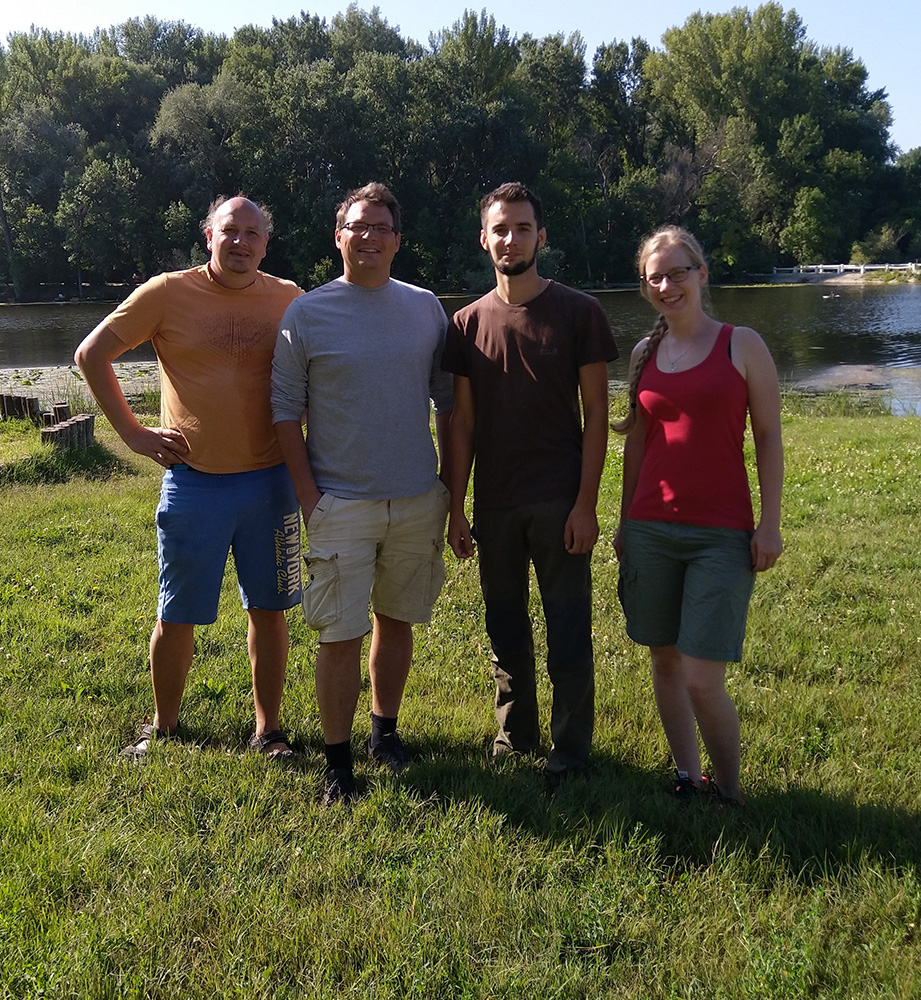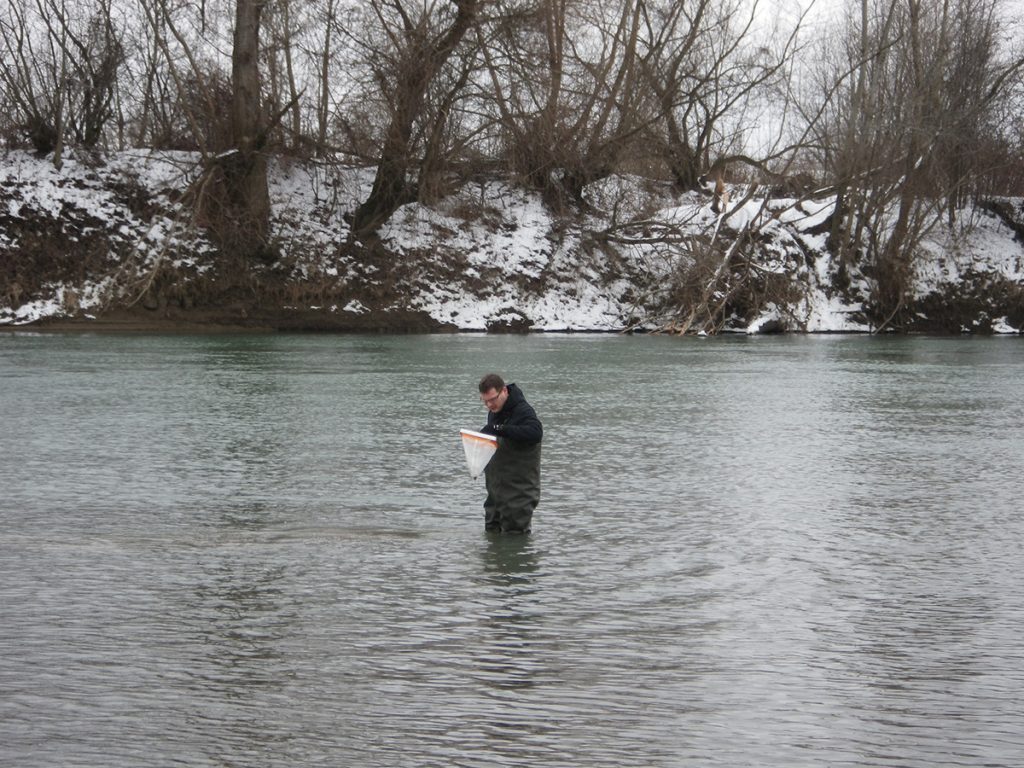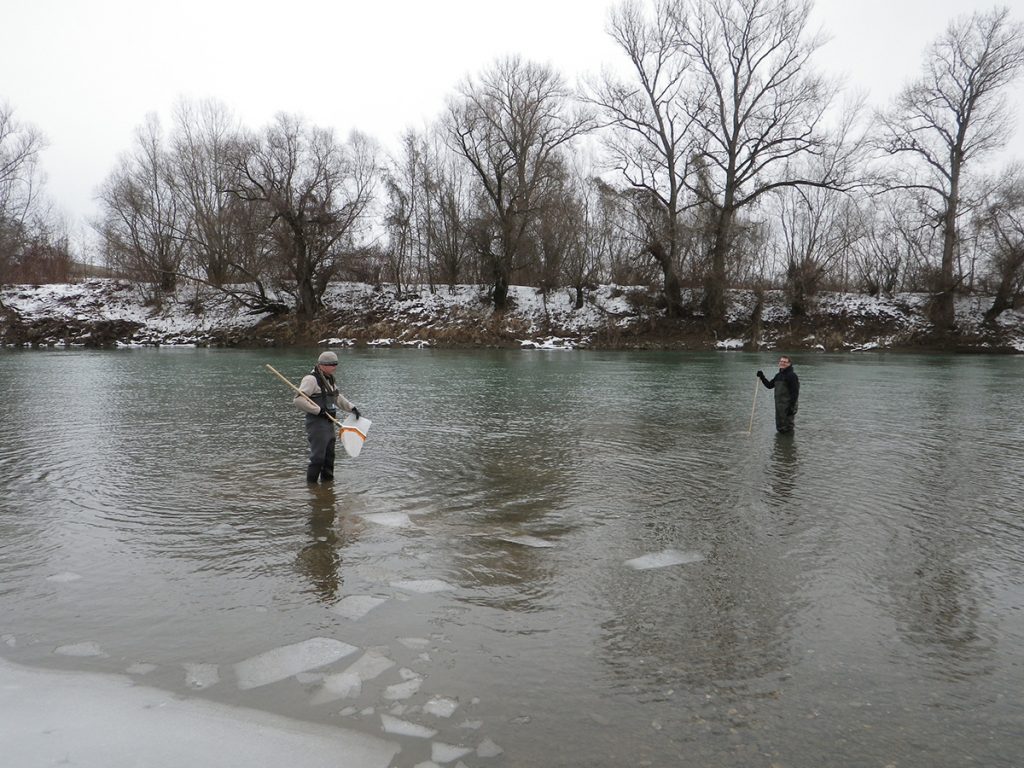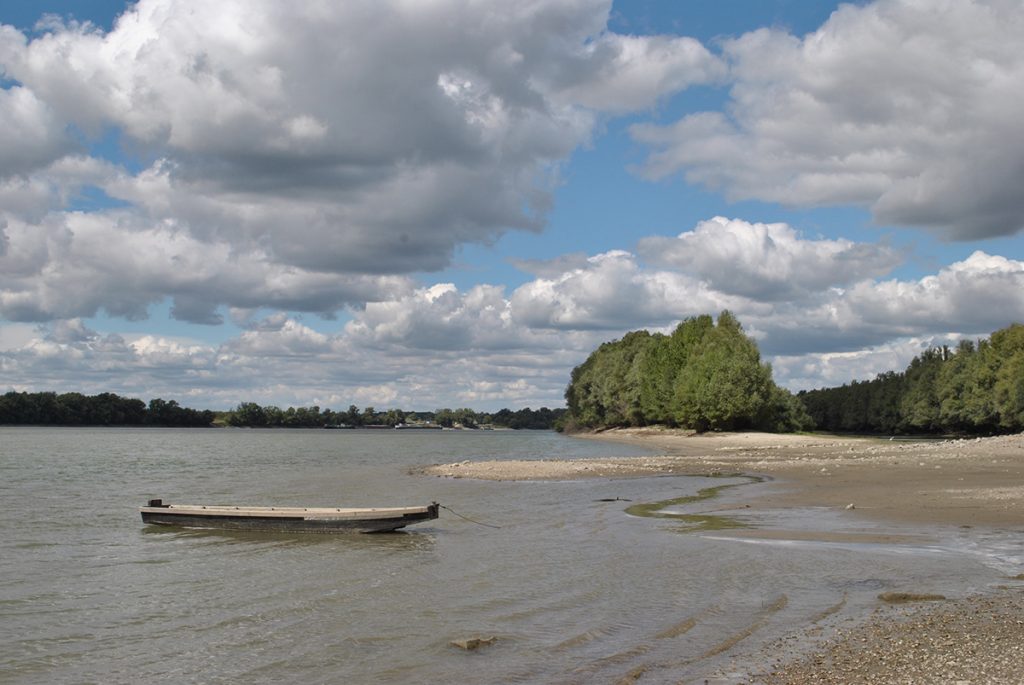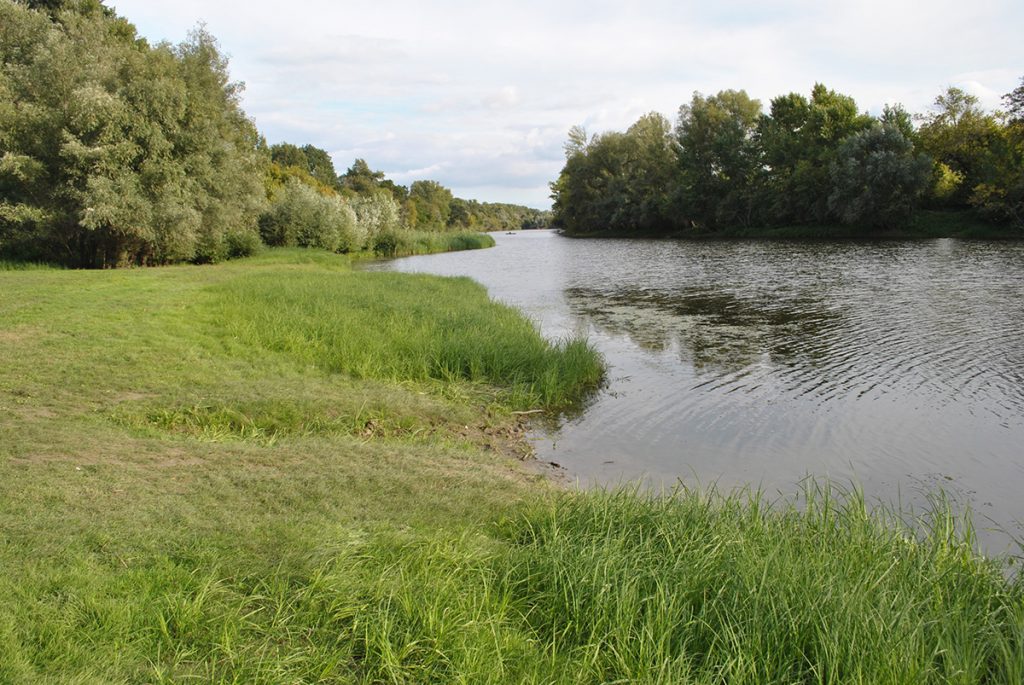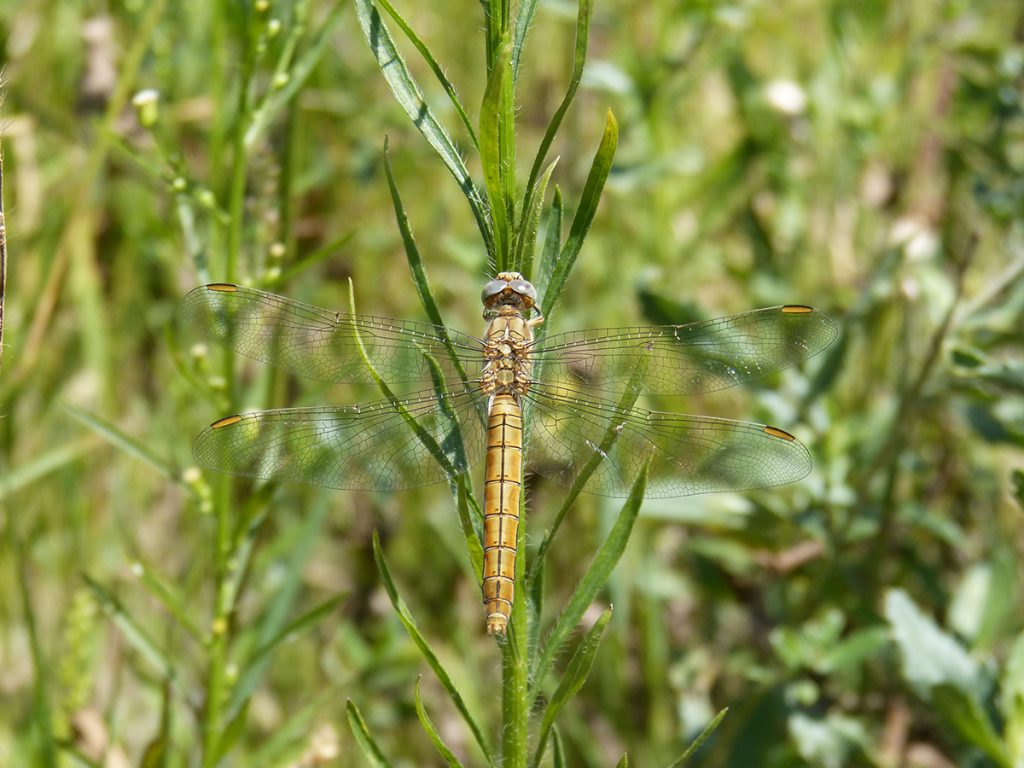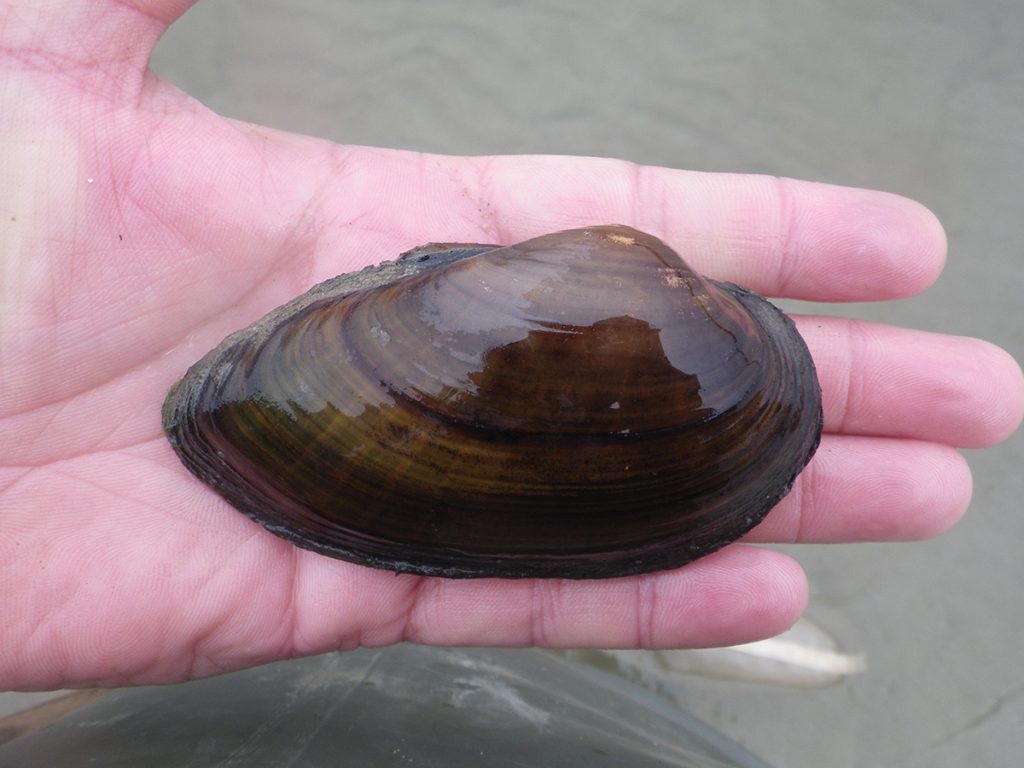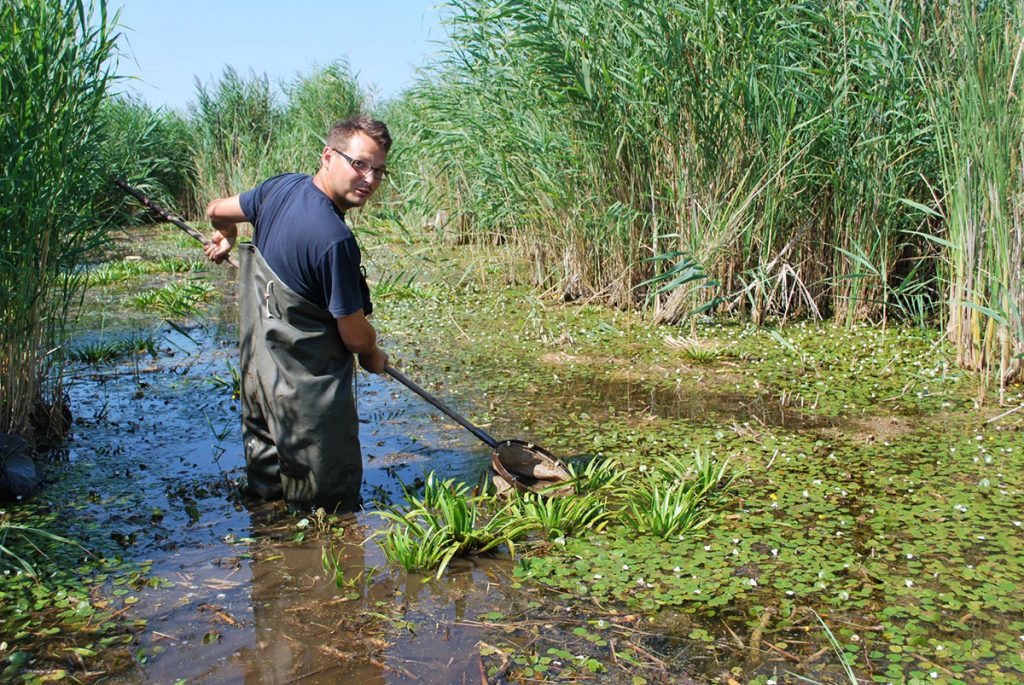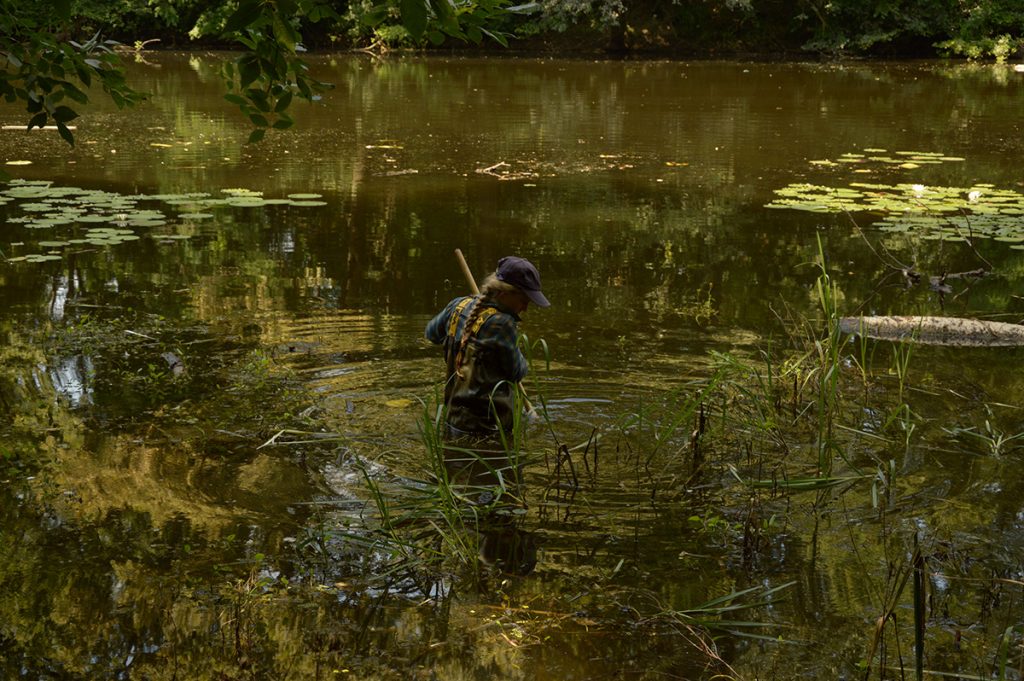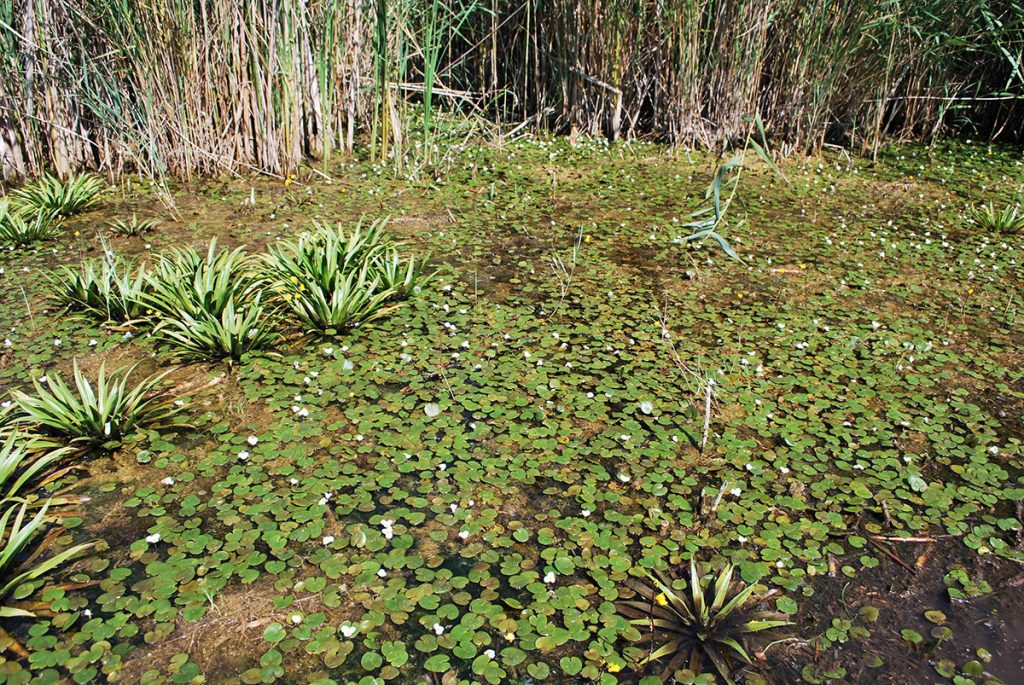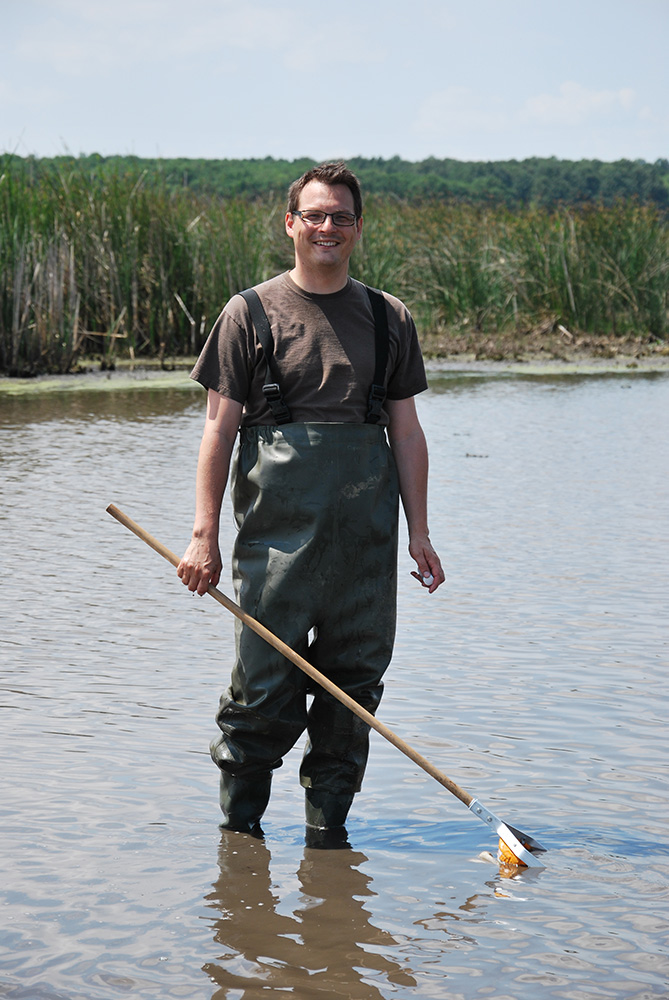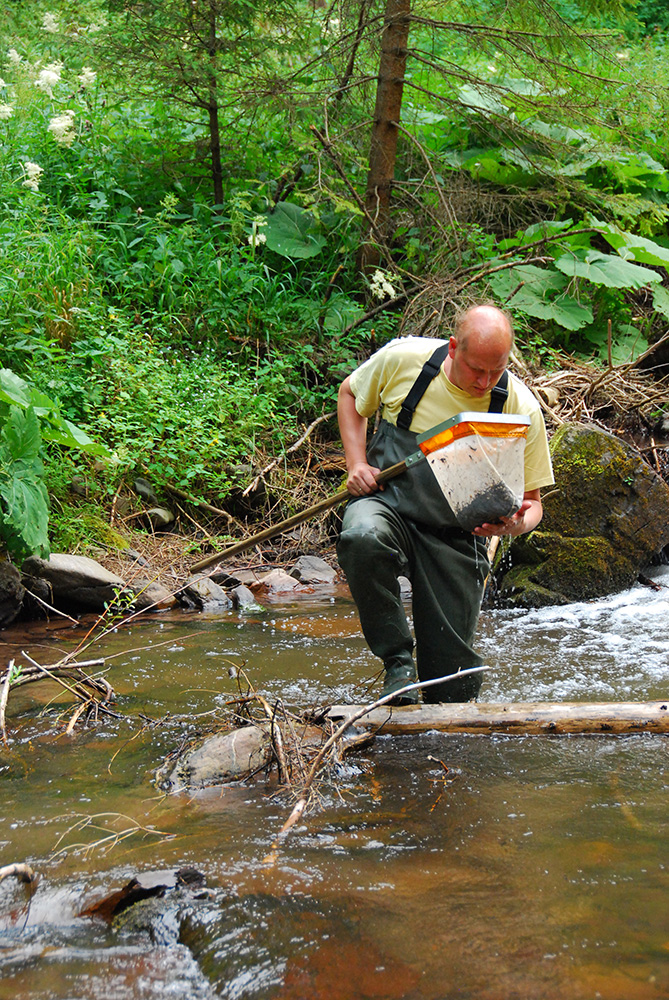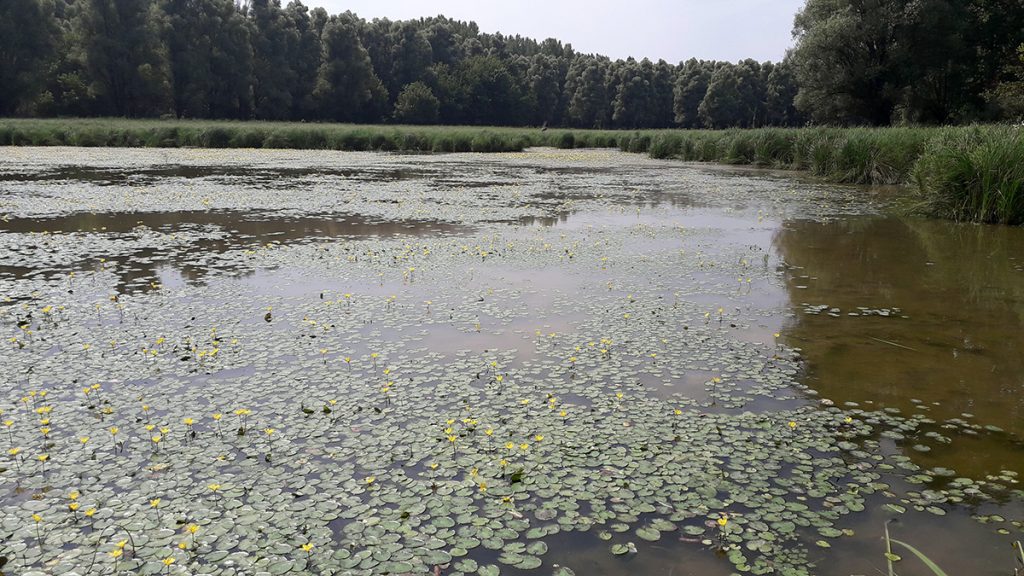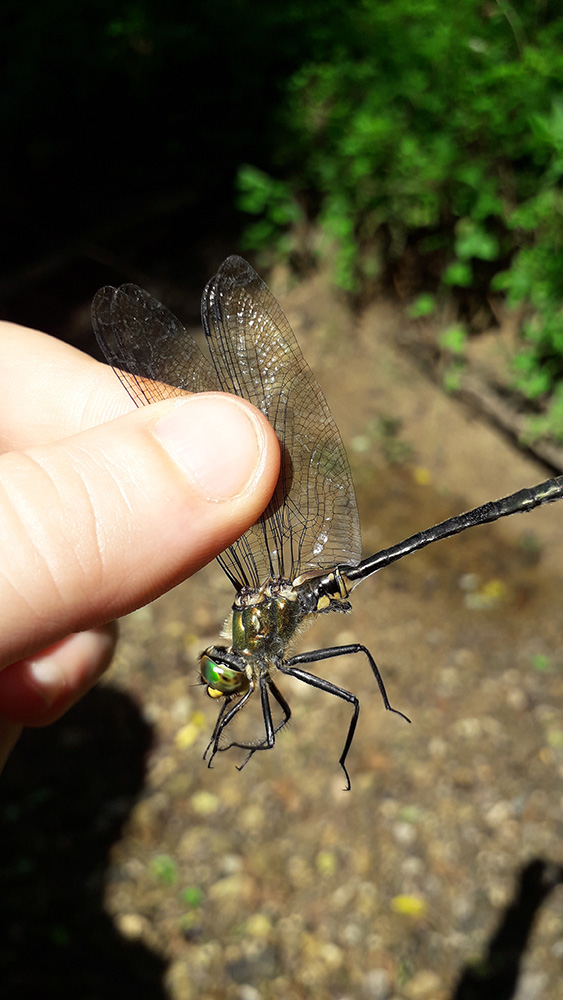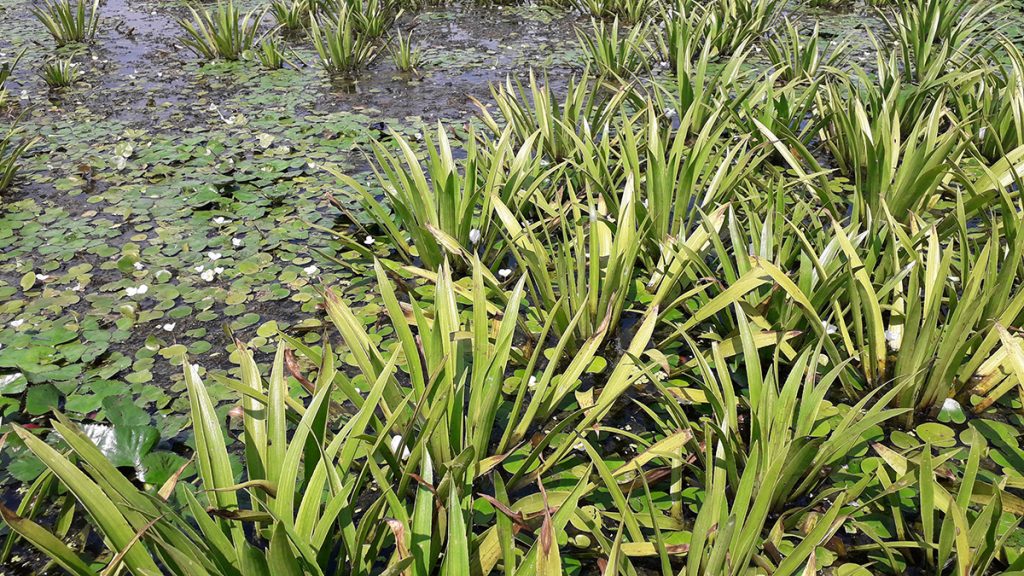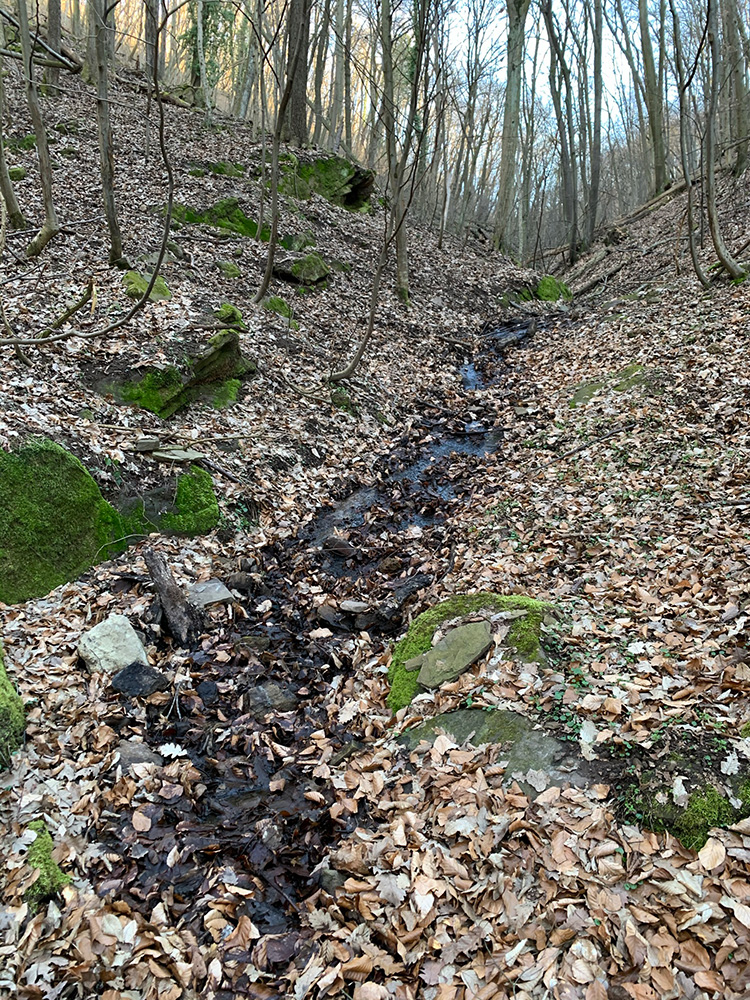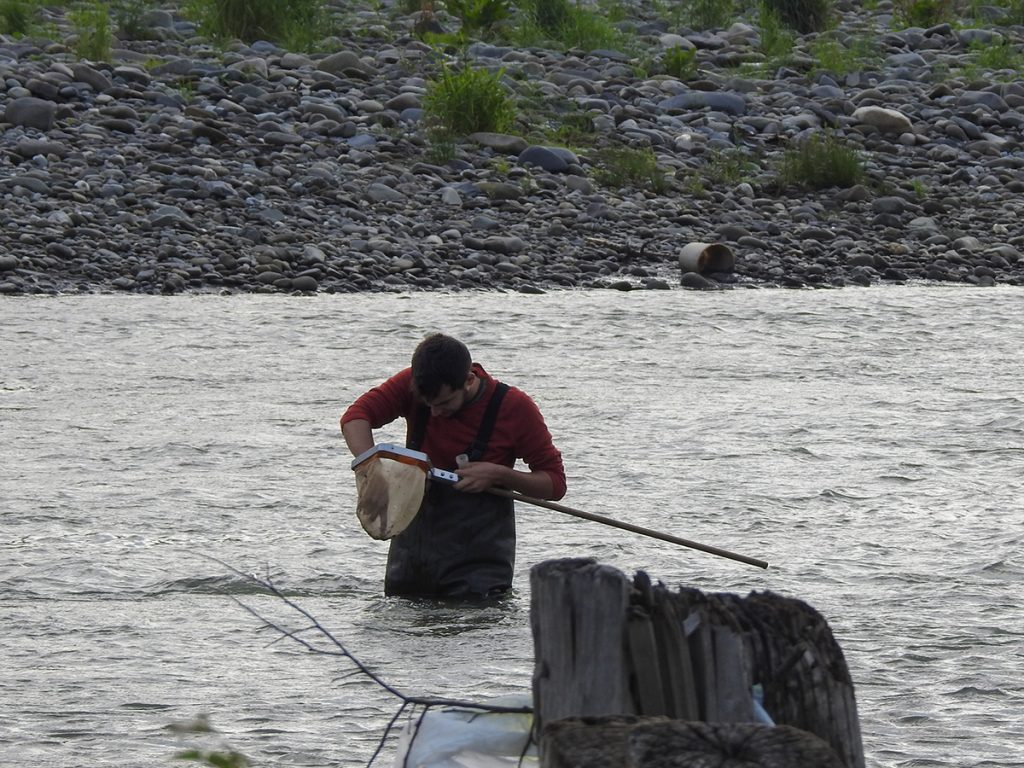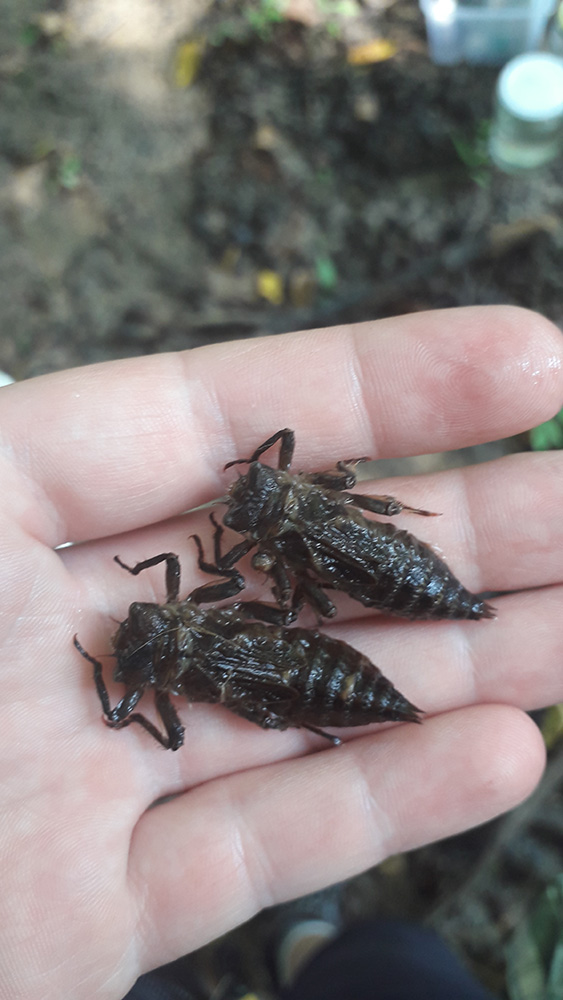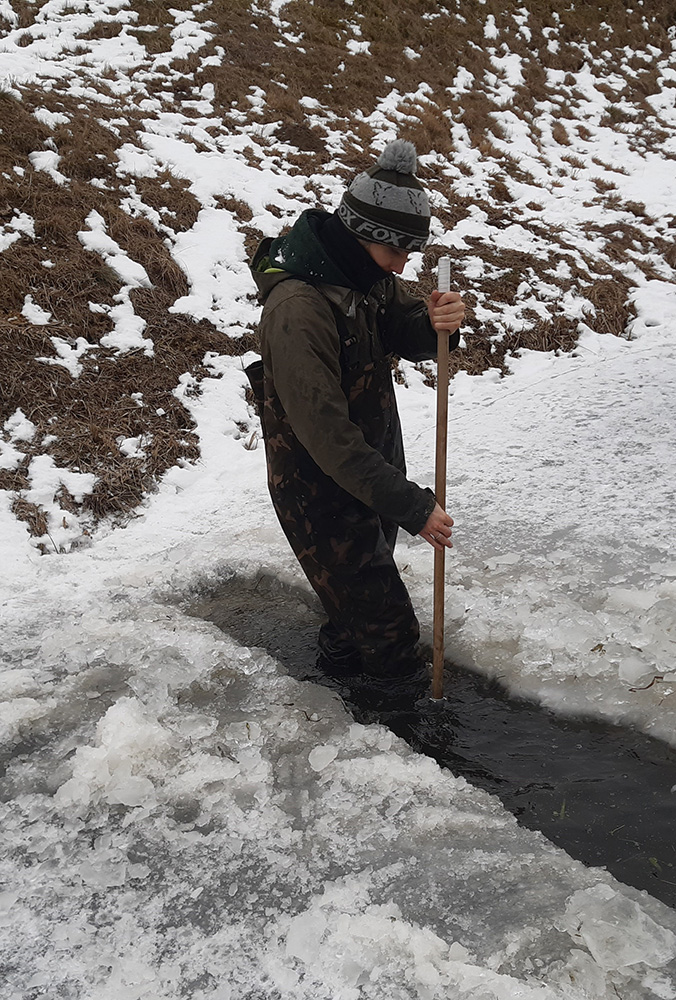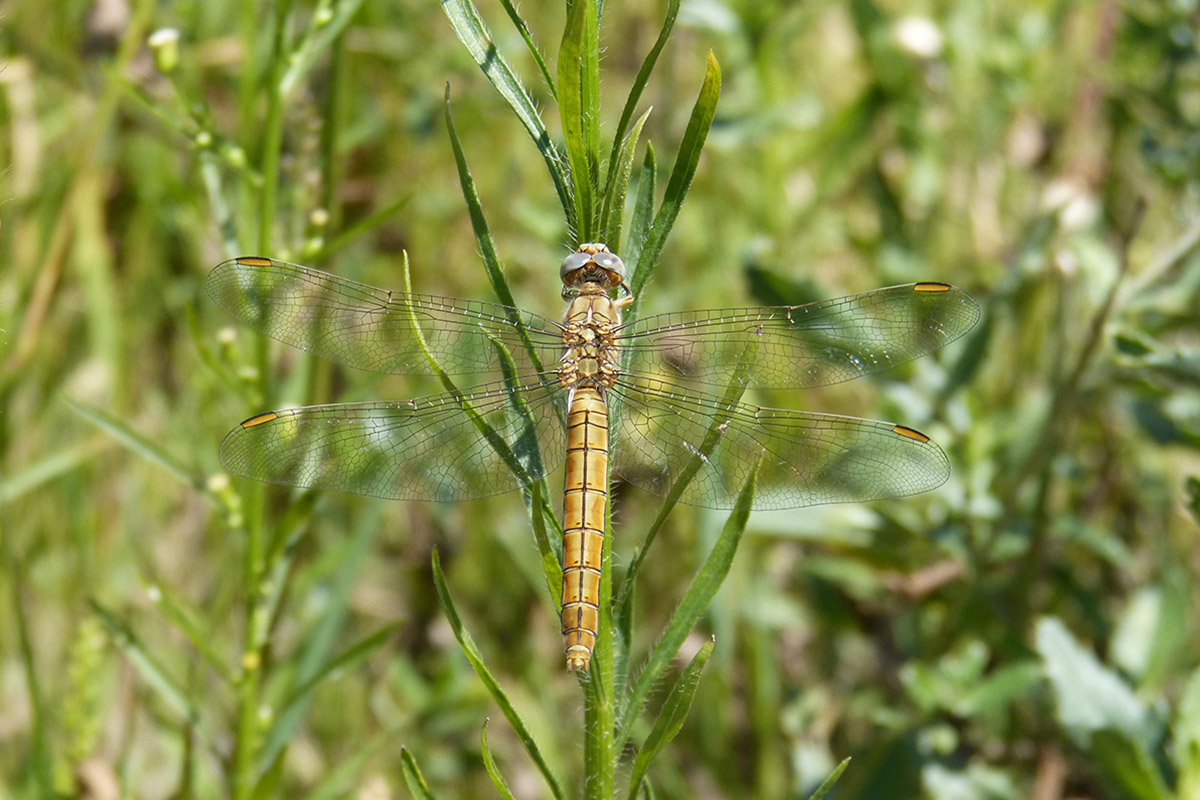
Research groups
Aquatic Macroinvertebrate Research Group
Members of the research group:
-
Békési, Csaba, PhD-hallgató
technician
-
Bozóki, Tamás
research fellow
-
Gyökeres, Emese, PhD-student
technician
-
Szeles, Júlia
research fellow
-
Várbíró, Gábor, PhD
research fellow
Main profile:
The research group conducts basic and applied ecological research in aquatic and wetland ecosystems on macroscopic aquatic invertebrates.
Our basic research is related to the following specific topics: investigating the overall taxonomic, functional and phylogenetic diversity of aquatic communities, exploring the causes of changes in diversity profiles at different spatial scales. Determining spatial and environmental factors in community assembly in aquatic ecosystems. Impact of climate change induced droughts on community organisation. Investigating the role of dispersal in the taxonomic, functional and phylogenetic composition of aquatic communities in response to environmental factors altered by climate change. Assessment of distribution areas of macroscopic aquatic macroinvertebrate species of European importance using different climate scenarios.
In addition, we systematically and continuously carry out zoological surveys of the Tisza River Basin. With these baseline studies we are making a significant contribution to reducing the knowledge gap on various aspects of biodiversity that has made it difficult to conduct comprehensive analyses so far. Zoological surveys and mapping will greatly facilitate the early detection of invasive species and the monitoring of their spread as well.
We conduct our applied research primarily in line with the EU Water Framework Directive. From a societal point of view, it is important to study the impact of pressures on surface waters, and we analyse the individual and synergistic effects of pressures on the taxonomic, functional and phylogenetic composition of aquatic communities. For vulnerable waters (e.g. saline and small drying water bodies), we are developing more effective biotic indices to support ecological water quality assessment, which will allow a more accurate assessment of the ecological status of our socially important waters. In the urban environment, we monitor wetland habitats and carry out awareness-raising activities in line with our research activities.
Selected publications
Fekete, J.; Várbíró, G.; Szeles, J.; Bozóki, T.; Pernecker, B.; Csabai, Z.; & Boda, P.: Prolonged flow intermittency undermines the habitat potential of forested landscapes for a stream-dwelling dragonfly Ecological Entomolgy, Paper: een.70007 (2025)
2025
Szeles J; Bozóki T; Fekete J; Ficsór M; Boda P; Várbíró G.: Exploring macroinvertebrate community assembly rules: unraveling the effects of flow intermittency and poor ecological potential on environmental filtering and limiting similarity through functional traits Hydrobiologia, 1-22. (2025)
2025
Bozóki Tamás; Várbíró Gábor; Csabai Zoltán; Schmera Dénes; Boda Pál.: Resistance not resilience traits structure macroinvertebrate communities in newly drying stream sections HYDROBIOLOGIA , 14 p. (2024)
2024
Boda P; Szeles J; Lukács Á; B-Béres V; Bozóki T; Fekete J; Ficsór M; Nagy SA; Várbíró; G.: Hidden results of functional diversity in macroinvertebrates: response of trait groups to flow intermittency in lowland streams Inland Waters, 14(1-2), 127-142. (2025)
2025
Karádi-Kovács Kata; Szivák Ildikó; Bozóki Tamás; Kovács Krisztián; Móra Arnold; Padisák Judit; Selmeczy Géza Balázs; Schmera Dénes; Boda Pál.: Long-term recovery dynamics determined by the degree of the disturbance – Ten years tracking of aquatic macroinvertebrate recolonisation after an industrial disaster (Red Sludge Disaster, Hungary) SCIENCE OF THE TOTAL ENVIRONMENT, 921 Paper: 171071, 15 p. (2024)
2024
Fekete, J.; Várbíró, G.; Szeles, J.; Bozóki, T.; Pernecker, B.; Csabai, Z.; & Boda, P.: Prolonged flow intermittency undermines the habitat potential of forested landscapes for a stream-dwelling dragonfly Ecological Entomolgy, Paper: een.70007 (2025)
2025
Szeles J; Bozóki T; Fekete J; Ficsór M; Boda P; Várbíró G.: Exploring macroinvertebrate community assembly rules: unraveling the effects of flow intermittency and poor ecological potential on environmental filtering and limiting similarity through functional traits Hydrobiologia, 1-22. (2025)
2025
Bozóki Tamás; Várbíró Gábor; Csabai Zoltán; Schmera Dénes; Boda Pál.: Resistance not resilience traits structure macroinvertebrate communities in newly drying stream sections HYDROBIOLOGIA , 14 p. (2024)
2024
Boda P; Szeles J; Lukács Á; B-Béres V; Bozóki T; Fekete J; Ficsór M; Nagy SA; Várbíró; G.: Hidden results of functional diversity in macroinvertebrates: response of trait groups to flow intermittency in lowland streams Inland Waters, 14(1-2), 127-142. (2025)
2025
Karádi-Kovács Kata; Szivák Ildikó; Bozóki Tamás; Kovács Krisztián; Móra Arnold; Padisák Judit; Selmeczy Géza Balázs; Schmera Dénes; Boda Pál.: Long-term recovery dynamics determined by the degree of the disturbance – Ten years tracking of aquatic macroinvertebrate recolonisation after an industrial disaster (Red Sludge Disaster, Hungary) SCIENCE OF THE TOTAL ENVIRONMENT, 921 Paper: 171071, 15 p. (2024)
2024


